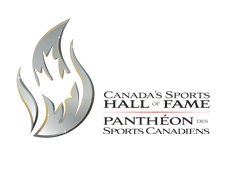Home | Military and Sport | Military Teams
The Winnipeg Falcons
PreviousNext
Most people know that cohesion is essential for team success, but it's rare for adversity to create the roots for such bonding. Except that is exactly the story of Canada's first Olympic Games Hockey Gold medalists, the team from Winnipeg - the Falcons. At the turn of the 20th century, Winnipeg was a city made up of people from many different cultures and it was tough for newcomers to integrate into the largely British community. One cultural group was from Iceland and the fair-haired, fair-skinned and larger-than-average Icelandic people stood out so that few people wanted to mix with them. When a group of young Icelandic boys, desperate to compete in hockey were denied entry into local hockey leagues, they formed their own. Winnipeg's loss was the local Icelandic community's gain, as a small group of boys from the same school and church, played hockey, skated and bonded together, more closely than anyone could ever imagine, winning the Independent Hockey League in 1915.
The leader of this particular group of players, the Winnipeg Falcons was Frank Frederickson who also captained the University of Manitoba's hockey team. When Frederickson enlisted in the 223rd Scandinavian Battalion to serve in the First World War, given the close bonds of the group, all of his team-mates joined him. Before the troop was shipped overseas, the former Falcons all obsessed with hockey, squeezed in as much practice on local lakes as possible. Once in Europe, they joined the Royal Flying Corps and served in England, France and Cairo, all places where it was impossible to play hockey. Sadly, two of the men died in action and as a remarkable coincidence, in an area of mass graves were buried only eight gravestones apart.
Returning from the war, the team continued where they left off as the most successful team in western Canada, winning the Allen Cup in 1920. With little preparation, the Canadian Olympic Committee felt there best chance of success was to pick a team for the Antwerp Olympic demonstration event from a team that seemed so close, and they asked the Falcons to represent Canada. Playing 'like a well-oiled machine' in their four matches they gave up only one goal and the goalie, Wally Byron, spent large portions of the games sitting down watching, just like the audience! Before returning home as heroes to a ticker-tape parade in Winnipeg, in full realization of the horrific experiences in the First World War and out of respect the Falcons took tours of the battlefields of nearby Flanders.
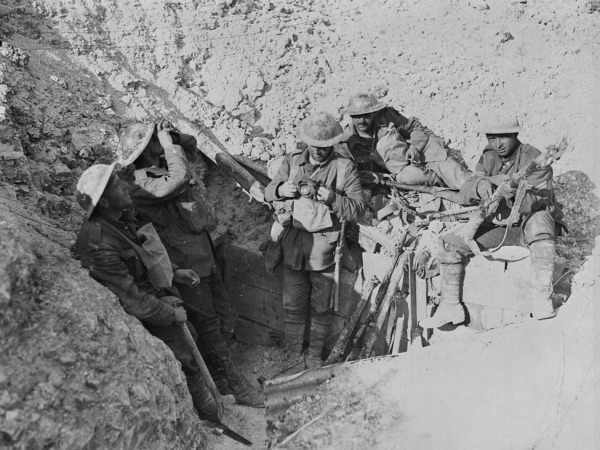
Members of the Winnipeg Falcons would have fought in several of the major offensives in World War One. In the battle for Hill 70 they helped capture trenches from the Germans. Their commitment to serving and courage helped to win the War.
Collection: Library Archives Canada
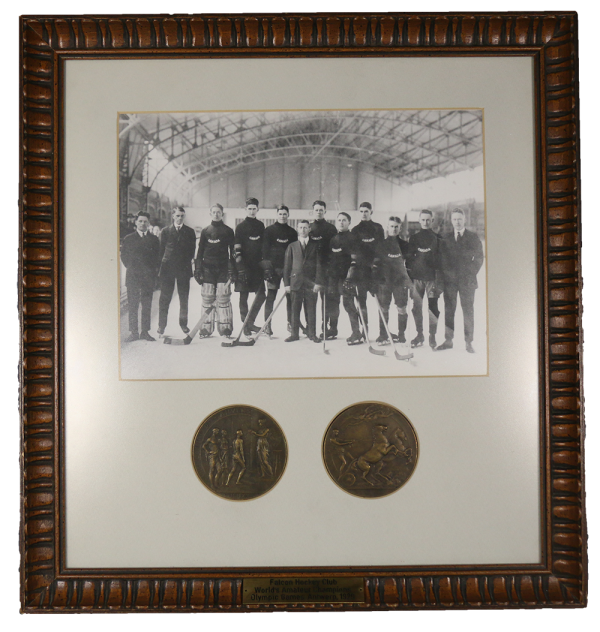
Ice hockey was played for the first time at the Olympics Games in Antwerp, Belgium in 1920. The Falcons gave up only one goal in their four matches on their way to the Gold medal. Their discipline, collaboration and competitive spirit were the hallmarks of this extraordinary team.
Collection: Canada's Sports Hall of Fame
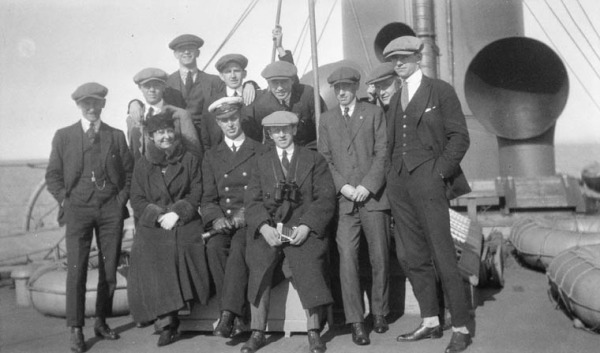
After winning the Allen Cup, the Falcons boarded the RMS Grampion to sail to Belgium. Among the team members were Frank Fredrickson who went on to play in the NHL and Mike Goodman, the 1920 Canadian speed skating champion.
Collection: Library Archives Canada
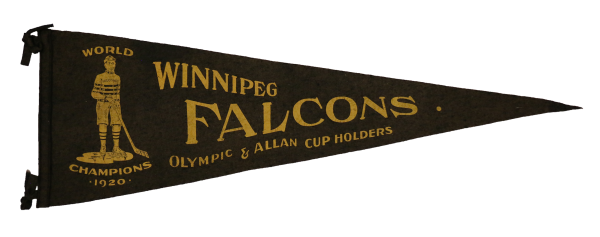
The Falcons were the Olympic and World Champions, the first such champions for Canada. While the team suffered some adversity in their efforts to play in the Winnipeg leagues, they never lost their strong sense of community and pride in their heritage. Winnipeg honoured their hockey heroes with a ticker tape parade when they returned from Europe after the Olympic Games.
Collection: Canada's Sports Hall of Fame
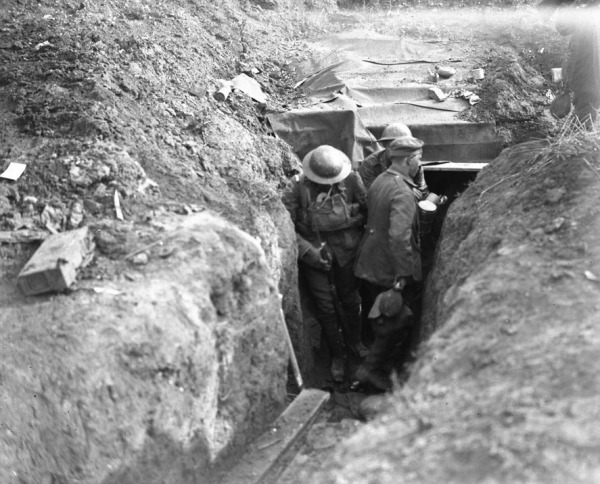
The Battle for Hill 70 was under the command of Sir Arthur Currie. The Canadian troops captured many of their objectives and held back determined German counter-attacks. Those members of the Falcons who fought there would go on to other battles.
Collection: Library Archives Canada

As soldiers they would have carried a Ross M-10 rifle. The Falcons managed to play hockey during their term of service for the 223rd Battalion. They showed the same sense of commitment whether playing hockey or fighting.
Collection: Army Museum of Canada
Previous Next
